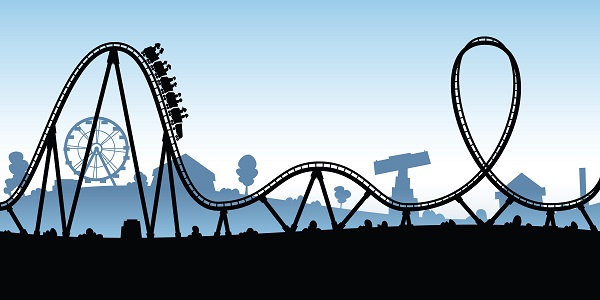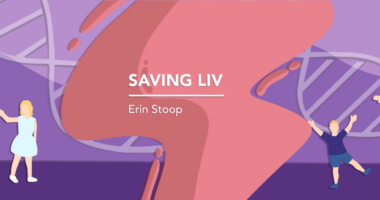The Roller Coaster of Parenting a Special Needs Child

Raising a special needs child is challenging. It is physically tiring and emotionally draining. But it is incredibly rewarding, too.
Some days leave me feeling like I know nothing and can’t do anything right, while others are positive and uplifting. This is the roller coaster that parents of special needs children ride each day.
When my daughter Abby was diagnosed with autism as a toddler, I was forced onto this roller coaster, and I have been riding it for about 23 years.
I call it a roller coaster because of the highs and lows involved, and the anxiety and loss of control felt while riding. A roller coaster can be both scary and exhilarating. It can cause riders to cry, scream, and laugh — sometimes almost simultaneously. Dealing with special needs children every day can evoke the same emotions.
When a child who is not reaching milestones suddenly reaches one, it’s elating. Waiting longer for that child to do something her peers have been doing for months or years makes the accomplishment so much more special. And the smallest things can mean the most, such as saying a new word, taking a step, or avoiding a tantrum when one was expected. These are the roller coaster’s fun moments, the parts of the ride that are filled with happiness.
However, the scary parts are interspersed in the ride, too. The many meetings and calls from school officials reporting negative information about a child, including how she is not performing up to standard. The persistent tantrums and opposition to what feels like everything a parent says. Having to crawl up jungle gyms or play areas at restaurants to retrieve a child who doesn’t want to leave. The numerous birthday parties she is never invited to because she doesn’t fit in. And this doesn’t even cover the medications and therapies that never significantly help. It is defeating, and it wears a parent down over time.
In 2017, Abby was diagnosed with Sanfilippo syndrome, a rare, genetic disease that will eventually take her life. This diagnosis caused the roller coaster to head in a whole new direction. The highs and lows are different. And I know these will change over time as her health worsens.
Currently, the highs consist of days when Abby is happy and feels good. Days when she says a few more words than the 5-10 she can still say. She tries to sing more on these good days, and her sleep is pretty good.
She has bad days when she doesn’t feel great or becomes more frustrated than normal, but I can’t complain much compared to other families with Sanfilippo children. Her bad days pale compared with what they will likely be in the future. So, I must focus on the positives and relish the good days.
The bad days happen when I get caught up in the reality that she will continue to worsen. Although my goal is to appreciate the time we have left with her, I still become frustrated with her, which makes me feel guilty.
Living with the daily reality that a child’s disease is slowly taking her away is heart-wrenching. It forces a parent to savor the moments that normally might be dismissed as insignificant. But I still find myself being impatient at times. Abby’s independence is almost completely gone, which means she is very dependent on her dad and me. This sometimes causes frustration for us, as I know all parents like us experience. But we are supposed to cherish every moment and not take anything for granted. That is when I’m consumed with guilt. Living this paradox is difficult.
As I would say to any other parent in my situation, I must allow myself some grace. I am human, and feeling frustrated is part of humanity. I cannot always walk around with a smile like everything is fine. But that is OK. And parents who have special needs or terminally ill children should know that it is OK for them, too.
I would not recommend this roller coaster ride to anyone. Losing a child is the most unnatural thing imaginable. I have an incredible support system around me of people who help me when I am feeling down or as if I am “not enough.” I pray that others have that, too. These children need us to be able to withstand the ride.
***
Note: Sanfilippo News is strictly a news and information website about the syndrome. It does not provide medical advice, diagnosis, or treatment. This content is not intended to be a substitute for professional medical advice, diagnosis, or treatment. Always seek the advice of your physician or other qualified health provider with any questions you may have regarding a medical condition. Never disregard professional medical advice or delay in seeking it because of something you have read on this website. The opinions expressed in this column are not those of Sanfilippo News or its parent company, Bionews, and are intended to spark discussion about issues pertaining to Sanfilippo syndrome.







Leave a comment
Fill in the required fields to post. Your email address will not be published.